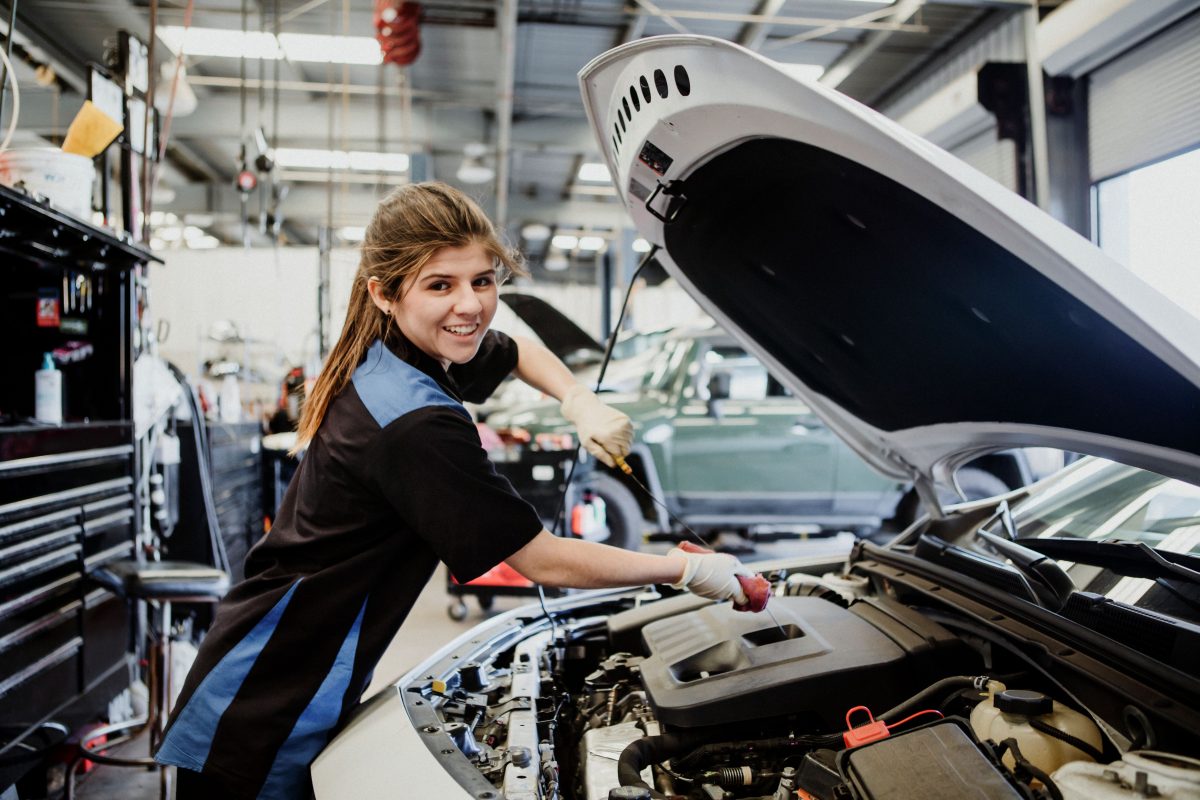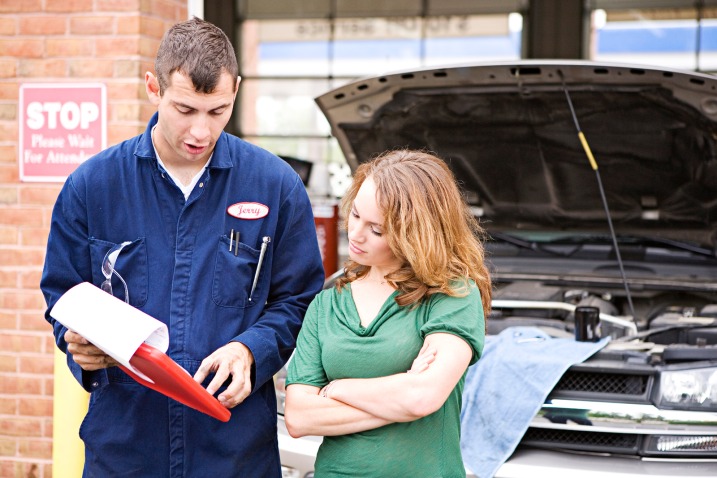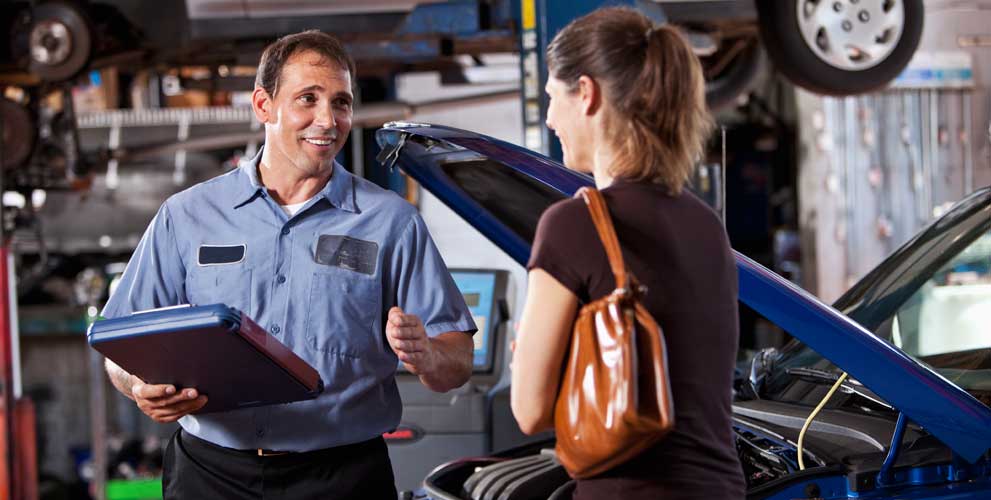Cars are more than just a means of transportation—they are complex machines that require regular maintenance and occasional repairs to continue functioning optimally. The world of auto repair is a blend of art, science, and technology, demanding both technical expertise and an understanding of the intricate systems that make up a vehicle. As the automotive industry advances with new technologies, the field of auto repair becomes both more challenging and more specialized. In this article, we will explore the fundamentals of auto repair, the critical importance of regular maintenance, and the evolving landscape of the industry.
Understanding Auto Repair: More Than Just Fixing a Broken Car
At its core, auto repair refers to the process of diagnosing, troubleshooting, and repairing various issues with a vehicle. While some may associate auto repair with major mechanical issues like engine failure or transmission problems, the scope of repairs extends far beyond that. Auto repair covers everything from minor fixes, like replacing worn-out brake pads, to more intricate work, such as reprogramming a vehicle’s electronic control systems or replacing a hybrid battery.
Auto repair involves a deep understanding of a vehicle’s various systems and how they interact. These systems include the engine, transmission, braking system, suspension, electrical system, heating and air conditioning (HVAC), and more. Each of these systems is made up of many parts, and even minor malfunctions in any component can lead to major issues if left unaddressed. Auto repair specialists, also known as mechanics or technicians, must be well-versed in both mechanical and electronic systems to perform repairs effectively.
The Vital Role of Regular Maintenance
One of the most essential aspects of auto repair is the ability to anticipate problems before they occur through regular maintenance. Preventative maintenance is crucial in extending the lifespan of a vehicle and avoiding costly repairs down the line. While modern vehicles are more reliable than ever, they are still subject to wear and tear from regular use. Routine maintenance includes tasks such as oil changes, tire rotations, brake inspections, fluid checks, and filter replacements.
Oil changes are perhaps the most well-known and fundamental aspect of vehicle maintenance. Engine oil lubricates the engine’s internal components, reducing friction and preventing overheating. Over time, oil breaks down and becomes less effective, which is why regular oil changes are necessary to keep the engine running smoothly. Depending on the make and model of the vehicle, oil changes are typically recommended every 3,000 to 10,000 miles.
Tire maintenance is another key element of regular upkeep. Tires are the only point of contact between the vehicle and the road, so keeping them properly inflated and in good condition is essential for safety and performance. Tires should be rotated regularly to ensure even wear, and tire pressure should be checked monthly. Additionally, ensuring that the tires are aligned and balanced helps prevent uneven wear and enhances handling.
Brakes, being critical to vehicle safety, should also be inspected regularly. Brake pads and rotors wear out over time, and replacing them before they reach the point of failure can prevent more expensive repairs and improve overall safety. A mechanic may also check the brake fluid levels to ensure the system is functioning properly.
Fluid checks are also an important part of preventative maintenance. Transmission fluid, coolant, power steering fluid, and brake fluid all play crucial roles in the operation of a vehicle. Low or contaminated fluid levels can lead to mechanical failure, so they should be inspected regularly. A mechanic will check for leaks, test fluid levels, and top off or replace fluids as needed.
While these maintenance tasks are generally simple and routine, they are vital for the continued health of a vehicle. Neglecting these tasks can lead to serious damage that might result in costly repairs, downtime, and safety hazards.
Diagnosing and Repairing Auto Issues
Despite regular maintenance, cars occasionally break down due to wear, accidents, or malfunctions. Diagnosing and repairing these issues requires a combination of skill, experience, and specialized tools. The process typically begins with a diagnostic check, where a mechanic will assess the vehicle’s symptoms and use diagnostic tools, such as an OBD-II scanner, to identify error codes from the car’s onboard computer.
Modern vehicles are equipped with a wide range of sensors and computerized systems that allow them to monitor everything from engine performance to tire pressure. When a problem arises, these systems often provide diagnostic codes that help mechanics pinpoint the issue. These diagnostic tools have revolutionized the auto repair industry, making it faster and more accurate to identify problems. However, while diagnostic tools are invaluable, a mechanic’s experience and knowledge are still required to interpret the data and make the right repairs.
Once the issue is identified, the mechanic will begin the repair process. This could involve replacing faulty parts, such as a worn-out alternator, a malfunctioning starter motor, or a broken timing belt. In some cases, repairs may require more in-depth work, such as dismantling the engine or replacing transmission components. The mechanic must also ensure that all parts used in the repair are of high quality, as substandard components can lead to recurring problems.
In addition to mechanical repairs, the auto repair industry has seen significant advancements in the area of electrical repairs. Many modern vehicles rely heavily on complex electrical systems to control everything from engine performance to entertainment functions. Diagnosing electrical issues, such as faulty wiring, malfunctioning sensors, or failing control modules, requires a solid understanding of automotive electronics.
For example, hybrid and electric vehicles present unique repair challenges due to their high-voltage systems and specialized components. These vehicles require technicians to have specific training and certifications, as working on the electrical systems can be dangerous without the proper precautions. Electric vehicle repairs may involve battery replacements, charging system checks, or software updates for the vehicle’s control systems.
The Future of Auto Repair
As the automotive industry continues to evolve, so too does the world of auto repair. New technologies, such as autonomous vehicles, electric cars, and advanced driver-assistance systems (ADAS), are reshaping the industry and presenting new challenges for technicians. These vehicles often require specialized knowledge, tools, and diagnostic equipment to maintain and repair, making it more critical than ever for repair shops to stay up-to-date with the latest advancements.
Additionally, the rise of smart cars means that auto repair technicians may soon have to deal with software updates, cybersecurity issues, and increasingly sophisticated control systems. As vehicles become more integrated with digital technology, auto repair specialists must embrace continuous learning and adapt to these changes to remain competitive in the industry.
Conclusion
Auto repair is both an art and a science, requiring a combination of skill, knowledge, and technology to ensure that vehicles remain in top condition. Regular maintenance plays a crucial role in preventing major issues, while timely repairs can extend the life of a vehicle and enhance its performance. As the automotive industry continues to innovate, the role of the mechanic will only grow more complex, demanding new skills and expertise. For car owners, understanding the importance of maintenance and repair can lead to a smoother, safer driving experience and ultimately save time and money. Whether you are dealing with minor wear-and-tear issues or facing more significant mechanical problems, a well-maintained vehicle and a trusted repair professional are key to keeping your car running for years to come.







